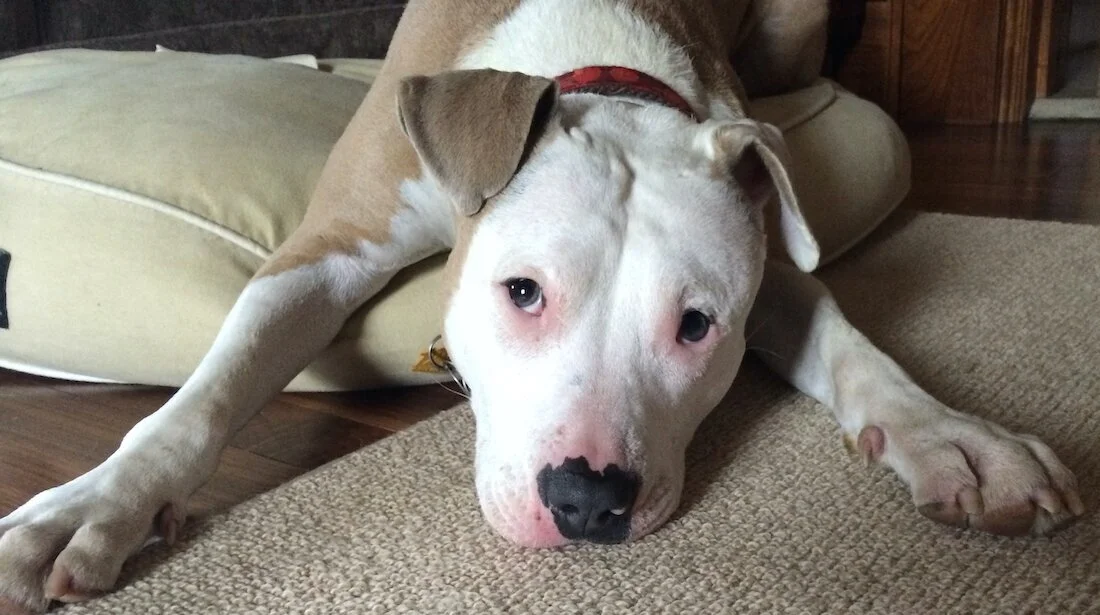 I love Christmas. Passionately.
I love Christmas. Passionately.
About the only thing I won’t do is pray for it. It’s against my religion. That is, I have none. Which makes the Christmas spirit, perversely, even more essential to me.
In every other way I am its disciple. A commitment that manifests itself practically and philosophically.
Three years ago I put together the definitive Christmas playlist. Uninterrupted, it lasts 24 hours. From Bing to Sting, from the Partridge Family to pear trees, it contains the entire spectrum of Christmas musical styles and sentiments. Plus the delicious irony that comes with including songs from the Carpenters’ Christmas collection. The power of the aspostrophe.
But Christmas is a visual luxury as well. And my Christmas tree lighting methodology is legendary in certain circles. Indeed, attempts to replicate it without sufficient guidance have resulted in disaster. The key is to start with the trunk. And never to use less than 1500 lights per tree - a recommendation your electrician may take exception to. Ours did.
1500 lights takes some time. About seven hours. Enough to watch the four movies that exemplify Christmas. Which, I suspect, explains why lighting our tree takes exactly seven hours every year. A classic example of work expanding to fit the time available. Or required.
It’s A Wonderful Life. The power of context.
Miracle on 34th Street - the Edmund Gwen version. Sentiment and business strategy in a single sitting.
White Christmas. When the day comes that I open the barn doors to find a foot of snow and a horse drawn sleigh passing by, every breath thereafter will be a bonus. First, we need a barn.
And finally, A Christmas Carol. The 1951 version with Alistair Sim.
I grew up with the story of Scrooge. A man lost. A man reclaimed. A man saved. A hope that we each carry with us. For ourselves. And for our species. In many ways it is nothing less than a biographical account of the history of mankind.
It may also be the most widely and broadly interpreted story in the history of literature. Among my favorite versions is BlackAdder's Christmas Carol in which Ebenezer BlackAdder, the kindest man in all of England, is visited by three spirits. I won’t spoil it for you. Suffice to say, this is not how Dickens saw it turning out.
Of all the film versions, Alistair Sim’s portrayal remains truest to the spirit and original words. Artful, beautiful and evocative. It offers the most sympathetic and skilled depiction of Dickens’ story.
Depiction, however, is an important word. And infers interpretation. Assistance that Dickens, of all writers, seldom requires.
Oh! But he was a tight-fisted hand at the grind-stone, Scrooge. A squeezing, wrenching, grasping, scraping, clutching, covetous, old sinner. Hard and sharp as flint, from which no steel had ever struck out generous fire; secret, and self contained and solitary as an oyster. The cold within him froze his old features, nipped his pointed nose, shriveled his cheek, stiffened his gait; made his eyes red, his thin lips blue and spoke out shrewdly in his grating voice. He carried his own low temperature always about with him; he iced his office in the dog days; and didn’t thaw it one degree at Christmas.
The film incorporates many of Dickens’ words. And for many years satisfied me hugely. On many levels it still does.
But in 1994, its place in my heart was taken by another.
Truthfully, I don’t know how I learned that year that Patrick Stewart was performing a one-man version of A Christmas Carol for four weeks on Broadway. Christmas 1994 were the earliest days of the internet. And at 14.4 dial-up speeds, browsing and Google did not yet exist. Google, in fact, is still only 11 years old today. Which seems like saying air and water have only been around for a decade or so.
Chris and I had been together for not quite a year when we arrived in Manhattan that Christmas Eve. We were in the initial throes of starting our new company and life was filled with extraordinary promise. And uncertainty. Not until this year have I experienced the same range of possibilities. Hope and fear. Powerful forces when applied purposefully.
Hope and fear are foundations of A Christmas Carol. Base emotions that are behind almost all achievements of significance. And if there is a medium that evokes either more powerfully than Mr Stewart alone on a stage, I have yet to experience it. He played 41 characters, each as separate as if he were joined by a full cast.
Things that become important to our lives do so at different speeds. Some introductions provide instant reward and value. Other relationships develop less obviously, surprising us with their significance later. And often only once they have disappeared. A price for not living in the present. And a higher one than we realize at the time.
The opening line of A Christmas Carol - which until that night I had never heard spoken - belongs in my life to the former, instantly taking me to a world I have no wish to leave until the story is complete.
Marley was dead: to begin with. There is no doubt whatever about that.
For the next two hours that night Mr Stewart took us on the ride of a lifetime. Scrooge’s lifetime. It touches every emotion. Pulls at every heart-string. Is comedic and tragic in the same breath. And by the time, in the voice of a six year old boy, he delivered Tiny Tim’s immortal last line, every one of us was standing, applauding and weeping. It was as though we had swallowed Christmas whole. And the light came pouring from us as we floated home, the soundtrack safely in our possession.
The following year, we began a tradition of driving ourselves, Harry and Maya to Christmas on the east coast.
150 miles from Washington DC we hit play on disc one and heard, as though for the first time, Mr Stewart begin again.
Marley was dead: to begin with. There is no doubt whatever about that.
We have done this, without exception every year since. And for two and a half hours we are anchored, connected and reminded of all that is important in our small corner of the world. Perspective is easily lost, even by those fully conscious of its value. And touchstones imbued with objectivity become increasingly important as the world becomes more strident and complex.
We have hoped since 1994 to spend another evening in Mr Stewart’s company. But except for one near miss in 2002 - the last time he performed the production - we have come to see that particular Christmas Eve as our visit to Brigadoon. A magical world, accessible only once in every lifetime through an enchanted door.
Last week, however, it is possible I found a rusty key.
In Barneys.
It’s been a busy month, and the Christmas spirit has been elusive. Goodwill is a mindset, but exhibiting it or absorbing it in anything more than passing amounts requires time. And physical presence. Social media has yet to find a substitute for either.
With a week left before Christmas I decided some of both was in order. Besides which I needed a present for Chris. A stroll down Fifth Avenue on a freezing cold day later and I arrived at Barney’s.
Wandering the departments I soon found myself on the top floor. Christmas decorations and the restaurant. As I headed for the down escalator I hesitated for a moment so that a couple leaving after lunch could step on first. The man was bald.
He turned slightly as the escalator re-built itself, leaving me one step closer to him than I intended.
It was Patrick Stewart.
The ride to the floor below lasted less than fifteen seconds. It passed in an instant and lasted an eternity.
As we stepped off, I decided.
There is great risk in meeting those we admire. In those few moments they hold sway over foundations of our lives. Kindness, and our judgement is validated. Irritation, and another piece of our innocence is fractured. Like pavement ice on a thawing morning.
I interrupted him in mid-pause, as he and his companion were considering their immediate next step. He was slightly startled by my approach, his reaction that of a man un-used to intrusion, not tired by it. He is not tall but has great presence. One that allows him to fill any space he occupies.
I spoke quickly. Nervous excitement, and anxiety to get the words A Christmas Carol across my lips. An instinct that they provided a connection.
Instincts are high risk. But they need to take flight if we are to learn about ourselves. Strategically sound judgement is crucial. In business. Or life. But magic comes from exploration. And the unknown.
“Do you think you’ll ever perform A Christmas Carol again?” I asked breathlessly. “We saw your performance on Christmas Eve 1994, here in New York. It’s become an important part of our Christmas.”
I stopped.
He smiled. Gently. Shyly.
“There’s a question.” He paused and glanced away. “It gets harder.” He said it as though to himself.
I nodded. And mumbled understanding.
Suddenly he turned back towards me, “I would like to. It’s very important to me personally.”
I looked at him with sudden confidence. “I know,” I said. “It’s what makes it great.”
The shyness had left him. He put his hand across his heart. “Thank you for stopping and saying something. It means a lot to me.”
I held out my hand and he took it firmly. “Merry Christmas.” I stopped abruptly, choking off his name, suddenly conscious that I wasn’t sure which one would emerge.
“Merry Christmas to you.” He smiled. Openly and warmly.
As he turned and walked away, I heard, I am sure, the voice of a six year old boy from somewhere close by.
Merry Christmas.
 A story today that seven percent of newborn’s have an email address at birth. By the age of two, 81 percent have a ‘digital footprint’.
A story today that seven percent of newborn’s have an email address at birth. By the age of two, 81 percent have a ‘digital footprint’. 


























